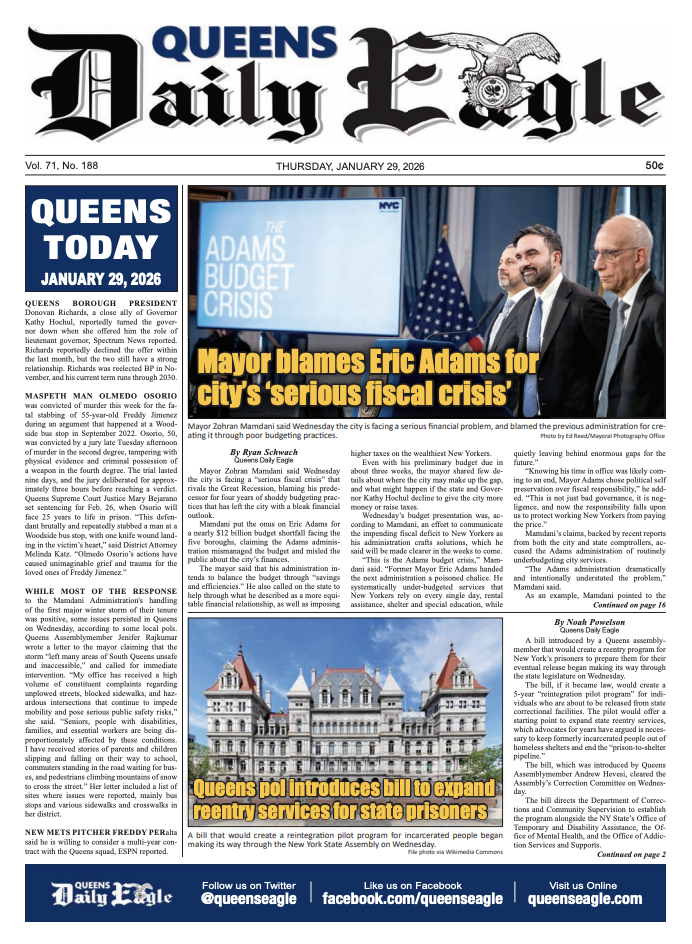State introduces ‘adverse childhood experiences’ training in DV shelters and support programs
/Assemblymember Andrew Hevesi introduced the bill that for the first time recognizes Adverse Childhood Experiences in state law. Photo courtesy of Hevesi’s office.
By Jonathan Sperling
Direct care workers in domestic violence shelters, safe dwellings and domestic violence programs across New York state will be trained to recognize Adverse Childhood Experiences, thanks to a bill proposed by Queens Assemblymember Andrew Hevesi.
Hevesi’s bill, which was signed into law by Gov. Andrew Cuomo on Wednesday, marks the first time the state recognizes Adverse Childhood Experiences, or ACE, and will create the first statewide ACEs training. Brooklyn State Sen. Diane Savino introduced the Senate version of the bill.
“Highly stressful experiences can cause irreparable harm, disrupting a child’s brain architecture,” according to the American Academy of Pediatrics, and “prolonged exposure to serious stress — known as toxic stress — can carry lifelong consequences for children.”
Experiences like exposure to physical, sexual and emotional abuse; mental illness of a household member; substance abuse; divorce and domestic violence can all create toxic stress, experts say.
Domestic violence shelters, safe dwellings, and domestic violence programs are ideal places to pilot this sort of training because there inherent trauma to witnessing or experiencing domestic violence, Hevesi said.
“The prevention and mitigation of childhood trauma will break cycles of abuse and poverty as well as save taxpayers billions of dollars in avoided costs for healthcare, education and incarceration,” said Hevesi, chair of the Assembly’s Social Services Committee.
“This is just the beginning of our policy work regarding ACEs. It is appropriate that this law was enacted during domestic violence awareness month, as it will mitigate the effects of that particular type of trauma for children,” he added.
Toxic stress can damage the structure and function of a child’s developing brain, causing learning difficulties, behavioral problems, difficulty regulating emotions and potentially debilitating physical and mental health issues, Hevesi said.
Required, consistent training will allow staff to understand the prevalence of ACEs, the efforts to reduce and prevent them, and their long-term consequences, he said.




